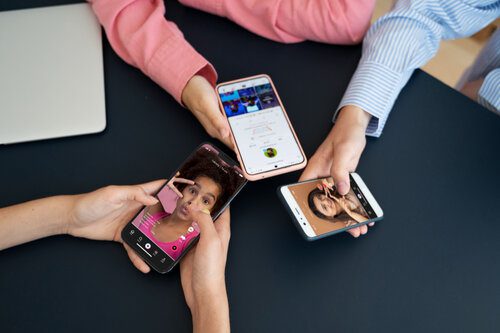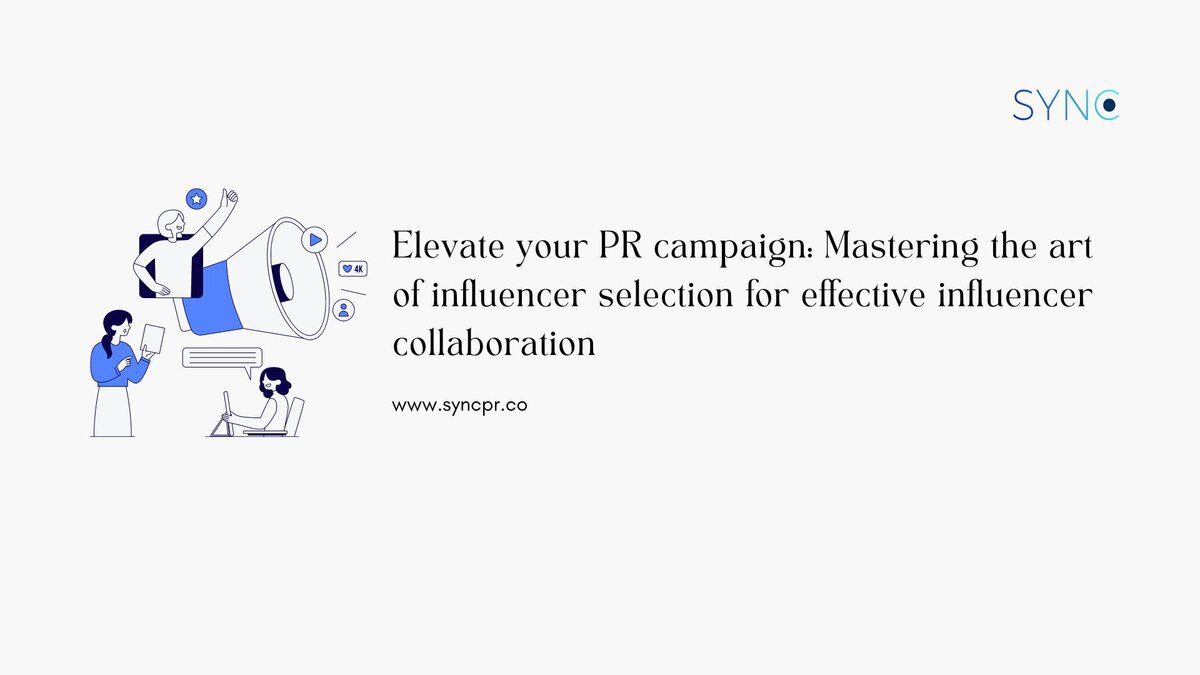Influencer collaboration has become a cornerstone of successful PR campaigns in the digital age, as it helps brands establish a strong presence on social media and build relationships with influential individuals. With the rise of influencer marketing, collaborating with the right influencers has proven to be a powerful tool in amplifying brand messaging and reaching a wider audience.
However, with the ever-growing pool of influencers and social media platforms, choosing the right and relevant ones has become increasingly daunting for businesses. To truly elevate businesses’ PR campaigns to achieve their desired results, it is essential to master the art of influencer selection and influencer collaboration. This requires a strategic approach that goes beyond just looking at follower count and engagement rates.
In this article, we will delve into the key factors that businesses should consider when selecting influencers for their next PR campaign to effectively drive maximum impact. With these insights, businesses can take their PR campaign to the next level and achieve their goals with the help of a carefully shortlisted list of influencers for their next influencer collaboration.
Also read: Your guide to an effective influencer marketing campaign.
What is influencer marketing and is it really necessary to drive a successful PR campaign?
The marketing landscape has evolved vastly from traditional approaches that involve handouts, billboards or even event marketing to a more digitalised approach that involves marketing on digital platforms. However, while this has allowed brands to reach a greater audience at a much cheaper cost, there has also been a shift in consumer mindset on their perspective of brand marketing. Consumers place less trust in the marketing strategy that consists of brands promoting themselves directly through the brand’s social media account. Instead, consumers are shifting towards trusting a new approach that relies on influencers to promote the products of the respective brands – influencer marketing. And, this is where an effective influencer collaboration comes into play.
One of the biggest reasons that contributed to the success of influencer marketing is the authenticity and trust that comes with it. Social media influencers are great at developing strong strategies that allow their followers to continue to trust their content. As such, with businesses leveraging on the trust between influencers and their followers, a successful influencer collaboration is expected to drive a positive impact for the business, especially with 84% of consumers purchasing a product or service merely because it was recommended by an influencer.

For instance, Warby Parker, a fashionable yet affordable eyewear brand, achieved an impressive 3.4% engagement rate, 800,000 people reached, 55,000 likes, and 640 comments by collaborating with seven micro-influencers who had decent followings on Youtube and Instagram. This influencer collaboration case study further amplifies the power of influencers, whereby even with a smaller follower count, micro-influencers are also able to drive positive impact.
Nonetheless, with so many influencers on social media, how do you know which is the perfect fit for your influencer collaboration?
The 3 basic steps in picking the right influencers for your next influencer collaboration
Before delving into the 3 basic steps we recommend, it is crucial to first understand that with the different social media platforms currently available in the market, there is no one-size-fits-all approach to developing the best influencer collaboration strategy. Instead, to help you get started on developing one, here are 3 basic steps to do so.
1. Identifying the target audience for influencer collaboration
According to a study done by Matters Communication, 61% of respondents appealed most to personalities they can relate to. This shows audiences will pick influencers they feel familiar with if they have similar experiences. Hence, influencers must be aligned with the brand so that their followers are the target audience. Your target audience must have already been thoroughly studied, and you should be familiar with behavioural, psychographic, demographic, and geographic segmentation. To engage with the target audience on the same frequency, the influencers you uncover must share certain characteristics:
- Demographic segmentation: This gives information about target audiences from age, gender, marital status, and marital status. These factors allow businesses to customise marketing strategies accordingly to connect with certain demographic group
- Psychographic segmentation: This allows businesses to understand the audience’s values, interests and personality traits. It makes it easier for us to create meaningful messages that can relate to them.
- Consumer interaction with your product or service: This includes usage patterns, brand loyalty, frequency of purchases, and advantages sought, which are examined through behavioural segmentation. You can more successfully cater your marketing strategies to their requirements and wants by recognising these characteristics.
- Geographic segmentation: The focus of geographic segmentation is on the locations of your audience, including cities, countries, regions, and even individual neighbourhoods. Marketing campaigns and influencer collaboration can be tailored according to current trends in specific areas based on this segmentation
With this, businesses will be able to choose which influencers are right for them to connect with their target audience through the segmentation data. This allows us to connect genuinely with the target audience which increases the chances of the audience buying our products or services.
2. Engagement rate
On social media, influencers measure how impactful they are on their followers through engagement rate. It is more important to have a higher engagement rate compared to a high follower count as this shows that the audience will be more likely to try the brand or product that is marketed to them. Calculating the engagement rate is also very simple as you just get the average ratio of unique likes, comments, and shares divided by follower count over a post of the influencer.
The average ratio of unique likes, comments, and shares that a post receives divided by the influencer’s follower count is usually used to calculate the engagement rate. In short, if influencers have a high engagement rate, it shows that the followers find them trustworthy and this leads to them listening more to their advice and following the brands they support. Thus, this can ultimately translate into higher conversion rates and greater effectiveness in reaching their target audience, marketers frequently prioritise working with influencers that exhibit both a huge reach and a strong engagement rate.
3. Brand alignment and influencer collaboration
Building authentic connections with influencers pivots on setting up a solid arrangement between your brand and its values, objectives, and message. This arrangement goes past simple surface-level compatibility; it includes a profound understanding of what your brand stands for and what reverberates with the influencer’s followers. To attain this arrangement, businesses must begin with a clear handle on their brand character, values, and goals. This incorporates understanding the core values that drive your brand, the objectives you point to realise, and the message you need to communicate to your followers. By having a strong establishment of your brand’s character, you’ll successfully communicate your values and targets to potential influencer’s followers.
Once you have a clear understanding of your brand, the next step is to recognise influencers whose values and interests align closely with yours. When looking for influence collaboration, search for influencers who share comparable values as your brand, as this will empower them to authentically integrate your items or administrations into their content. When influencers reverberate together with your brand, they are more likely to form content that feels true and relatable to their followers, in this way expanding the viability of your PR campaign.
When influencers feel an association with your brand, they are more likely to be eager and enthusiastic about promoting your items or business. The genuineness will show through the brands and allow trust to be built amongst their followers which increases the engagement rate for the brand. By focusing on finding influencers who adjust together with your brand values and informing, you’ll be able to guarantee that your PR campaign reverberates together with your target audience on a more profound level, driving a more successful PR campaign.
Kickstart your influencer collaboration and marketing PR campaign today
Influencer collaboration is a powerful tool for elevating businesses’ PR campaigns. By carefully selecting the right influencers, businesses can expect to reach a larger and more engaged audience. However, it is key to remember to consider not only the influencer’s reach and engagement but also their alignment with your brand’s values and target audiences.
Through mastering the art of influencer selection, your brand can achieve success in the competitive world of influencer marketing. However, it is understandable that this can be a tricky and daunting approach for brands to master. If you are interested in integrating influencer collaboration into your PR campaign, feel free to contact us at hello(a)syncpr.co

